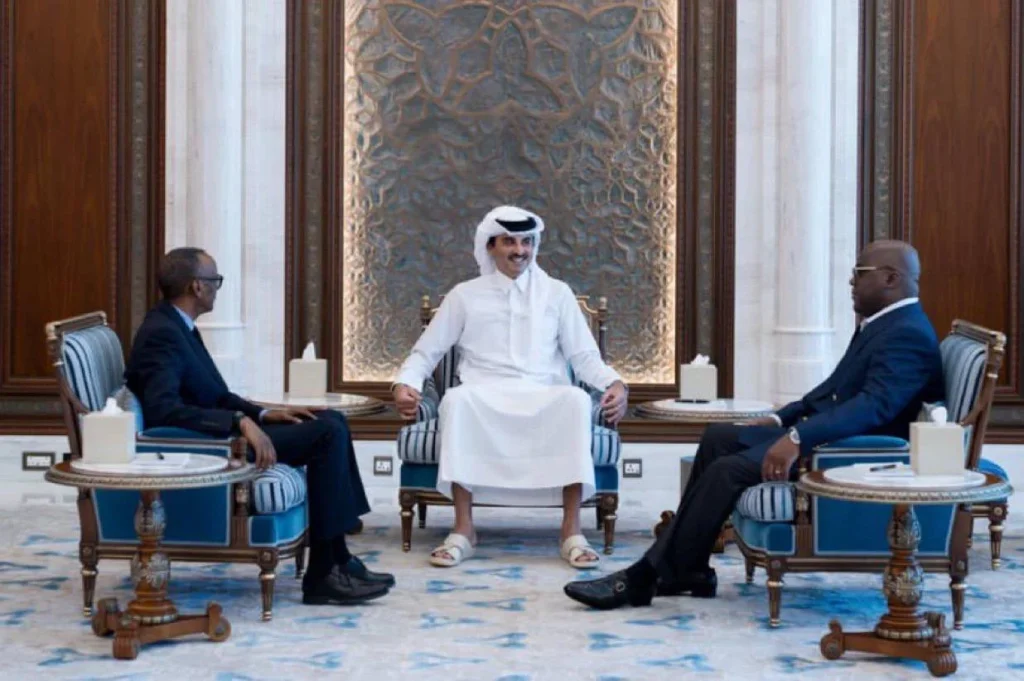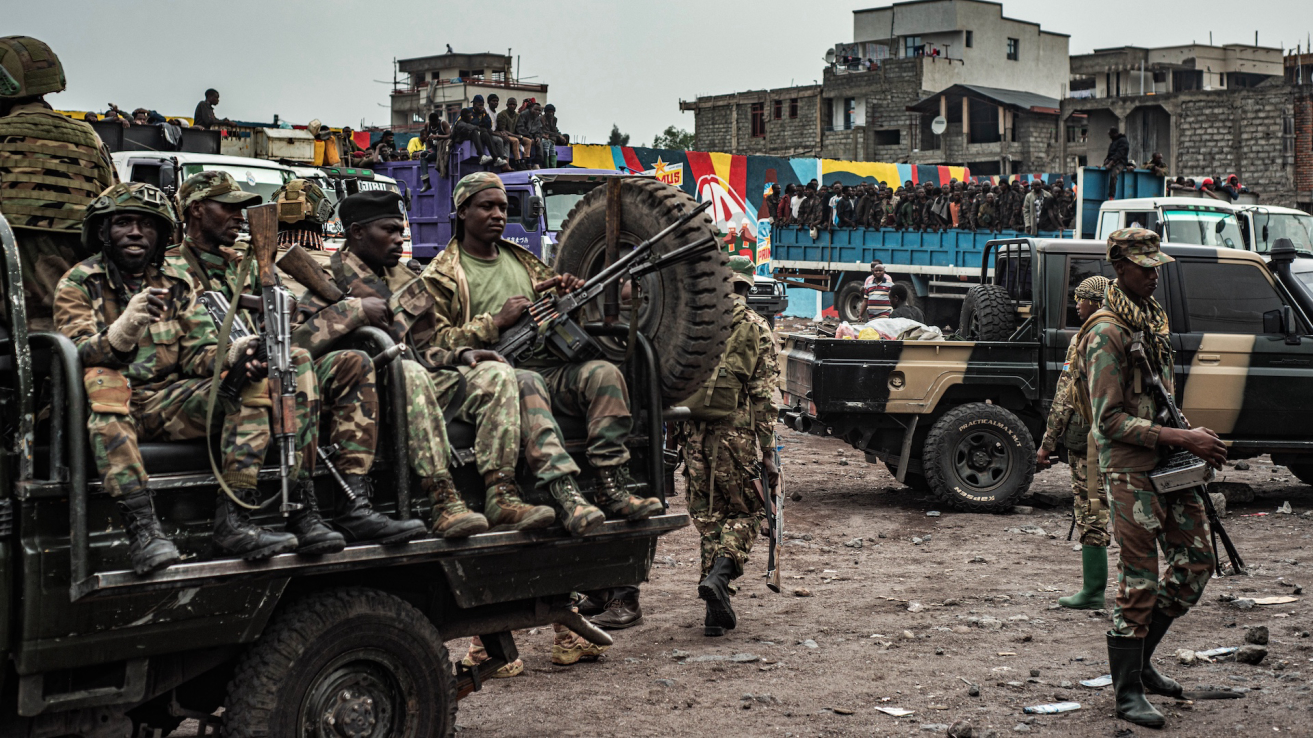The details of a potential ceasefire in the Democratic Republic of Congo’s war-torn east remain uncertain, despite a surprise meeting between Congolese President Felix Tshisekedi and Rwandan President Paul Kagame in Doha.
The mineral-rich region has seen an escalation in violence, with the Rwanda-backed M23 rebel group launching rapid offensives and capturing two major provincial capitals within weeks.
On Tuesday, Angola announced that peace talks scheduled in Luanda between Kinshasa and the M23 had not taken place. However, in an unexpected turn, Qatar confirmed that Kagame and Tshisekedi had met in Doha for negotiations mediated by Emir Sheikh Tamim bin Hamad Al-Thani.
According to a joint statement, both leaders expressed support for an “immediate and unconditional ceasefire” as previously agreed at an African summit. The meeting was described as “fruitful” and aimed at building confidence in a shared commitment to long-term stability in the region.
However, key questions remain unanswered. The Congolese presidency stated that “the terms of the execution of what has been agreed will be specified in the coming days.”

Qatar’s involvement in the mediation has raised eyebrows in Kinshasa. Political analyst Tresor Kibangula from the Ebuteli research institute noted that the Congolese government has been hesitant about Qatari mediation due to its close ties with Rwanda.
The Gulf nation has significant investments in Rwanda, including financing a $1 billion airport hub near Kigali. In recent years, Qatar has also signed investment agreements with both Kinshasa and Kigali.
A source close to the Congolese presidency suggested that discussions on the ceasefire’s implementation will now revolve around a roadmap adopted in Harare on Monday. That roadmap, endorsed by the East African Community (EAC) and the Southern African Development Community (SADC), calls for a permanent ceasefire within four months, backed by UN peacekeepers in North and South Kivu provinces.
Despite numerous diplomatic efforts, no peace deal has held in eastern DR Congo. More than half a dozen ceasefires have been signed and subsequently violated. In December, Kagame and Tshisekedi were supposed to meet in Luanda for peace talks, but disagreements over the terms of an accord led to the summit’s last-minute cancellation.
Since January, the M23 rebels—who claim to represent the interests of Congolese Tutsis—have seized the strategic cities of Goma and Bukavu. The DR Congo government claims that more than 7,000 people have been killed in the latest fighting, although AFP has not independently verified this figure.
A UN expert report has concluded that Rwanda has approximately 4,000 troops supporting the M23 and effectively controls the group. Kinshasa has long accused Kigali of exploiting the conflict to loot DR Congo’s vast natural resources.
Rwanda, however, denies supporting the M23 militarily and insists that it is defending itself from the FDLR, a militia founded by Hutu leaders involved in the 1994 Rwandan genocide.
The last direct negotiations between the Congolese government and the M23 took place in 2013. With violence escalating and past peace deals failing, skepticism remains over whether the latest diplomatic efforts will finally lead to lasting stability.


 Trending
Trending 